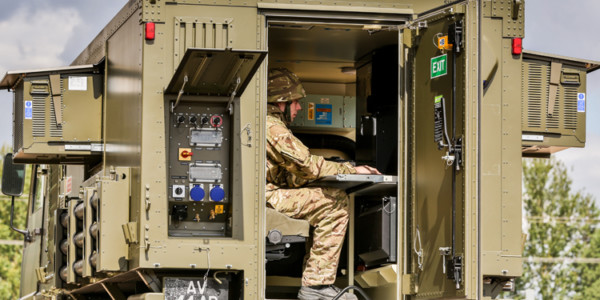What role do SMEs play in the defence industry?
With the ever-advancing march of technology, the incredible rate of change and the need to remain at the cutting-edge of capability while maintaining a strategic advantage, SMEs are playing an increasing role in the provision of bolt-on product knowledge and capabilities. By necessity, SMEs have honed their craft to become highly agile, lean and responsive. This has been accelerated by the government’s pledge to inject 25 per cent of its defence budget into the UK SME community.
How SMEs can secure success
The success of an SME providing niche products or solutions for demanding applications is hidden in their understanding of the details. The demand to get products right first time at the most competitive price has pushed engineering teams to develop a broader understanding of customer, business and end user needs. This is in conjunction with securing the ability to leverage compounds designed for multiple market sectors to deliver the best possible solution, on time and in budget.
Both breadth and depth of knowledge are required for the SME teams to consistently deliver success. Siloed approaches where individuals have no engagement or responsibility for the delivery as a whole are not conducive for agile, quick deliveries. Communication must be fast, concise, open and honest. The successful SME must work as an extension of its customers, enabling the ability to switch resources on and off as the programme dictates. The most effective SMEs will have grown to point that although they have distinct teams and responsibilities, they remain in virtual or physical proximity to the rest of the business and operate as a single entity toward the delivery of projects. Every member of the team should be fully invested in delivering success – not only for the business – but for customers and end users alike.
Partnering with the right SME
Partnering with the right SME will increase your capability and reduce programme risk. It will allow your teams to concentrate on the critical detail they deliver well, while empowering them to pass over deliverables better suited to those working more closely with technology. It will also improve the maintenance of communication and engagement.
A good SME should also be willing to accept a visit at minimal notice and be happy to provision for your teams to either locate within their premise for critical times, or interact with the teams personally whenever required.
Success requires more than just agility and the ability to understand or create detailed specifications. It demands more than an understanding of the requirements and application. Success in the evolving defence market depends on multidiscipline teams of internal resource and partners working together and openly for the delivery of a common goal.
A partner should enhance your capabilities by providing an understanding of the latest technologies, implementation limitations, compliance and certification, engineering and prototyping, commercial alignment, project management, risk mitigation, documentation and much more. The ideal partner will have a number of functionalities that can be applied and bolted onto your own. These can be switched on as and when needed to complement your own teams, allowing for fast and cost-effective adaptation of technology. But more critically, they must also have the flexibility to adapt to your processes and evolve with your business to enable the best potential for success. In addition, the ideal SME partner will also be growing and evolving themselves, with a keen eye for problem solving and a commitment for delivering reliability and quality. The best partnerships will enable both entities to combine on projects to become greater than the sum of their parts, extending the best of the capabilities from each.
The future relationship between defence and SMEs
I see SMEs playing a critical part in the future of defence and the successful delivery of technology in the support of strategic advances. I see them as the performance booster, the super charger that enables the burst of speed and agility required to deliver what is required and apply it where needed to ensure progressive and repeated success.
Image credits: militarysystems-tech.com, airforcemedicine.af.mil, ga-asi.com






